Last updated on December 8, 2023
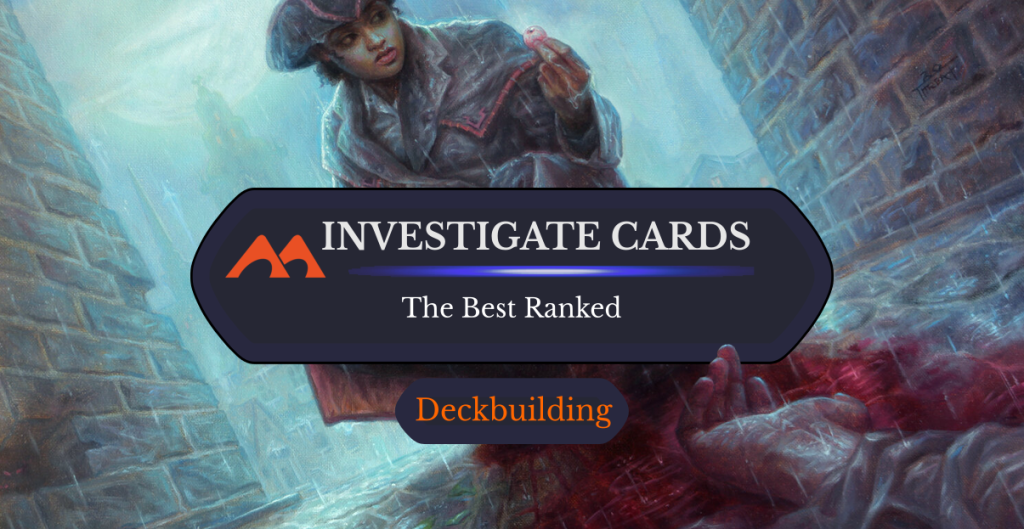
Eloise, Nephalia Sleuth | Illustration by Jarel Threat
Created in Shadows Over Innistrad, investigate gave us the Clue token, the first in a long line of resource-based artifact tokens. And that set was somewhat of a mystery since the protagonists were investigating weird changes on Innistrad.
Today I'm investigating the mechanic to bring you the best cards with investigate, as well as answering some questions you may have. We’ll also see where the mechanic sees the most play and which cards Commander decks are interested in playing investigate cards.
Ready? Let’s dive in!
What Are Investigate Cards?
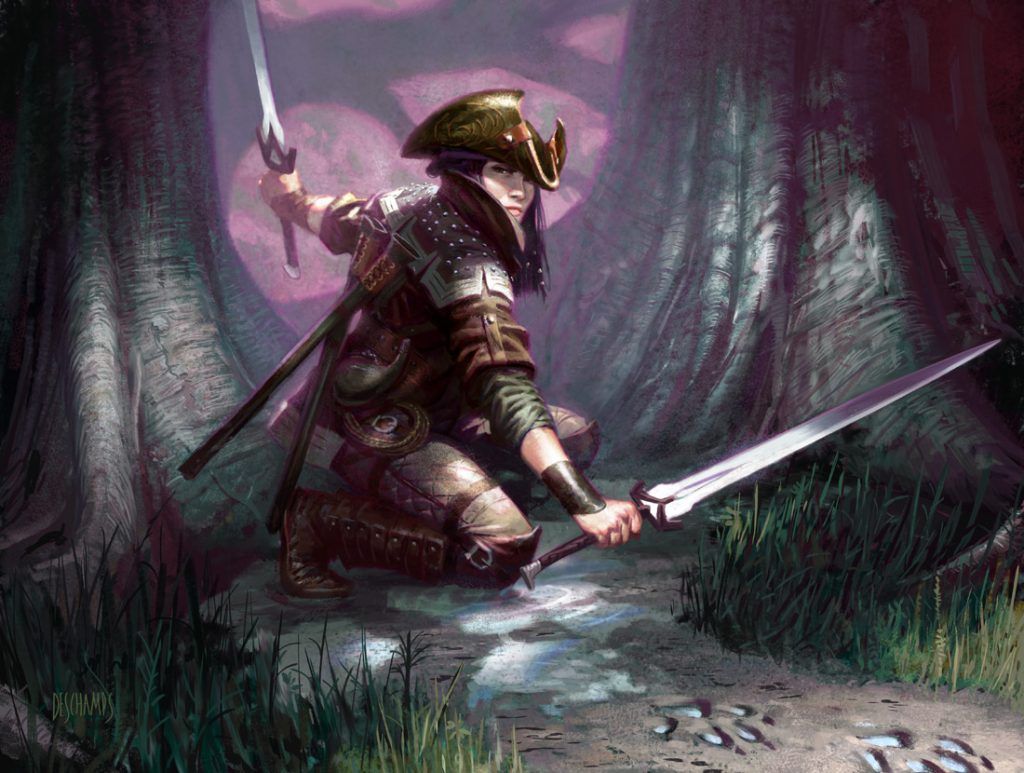
Tireless Tracker | Illustration by Eric Deschamps
Investigate is a mechanic that allows the controller to make a Clue token. Each time you investigate, you create a Clue token that says: “, Sacrifice this artifact: Draw a card.”
What Are Clues in MTG?
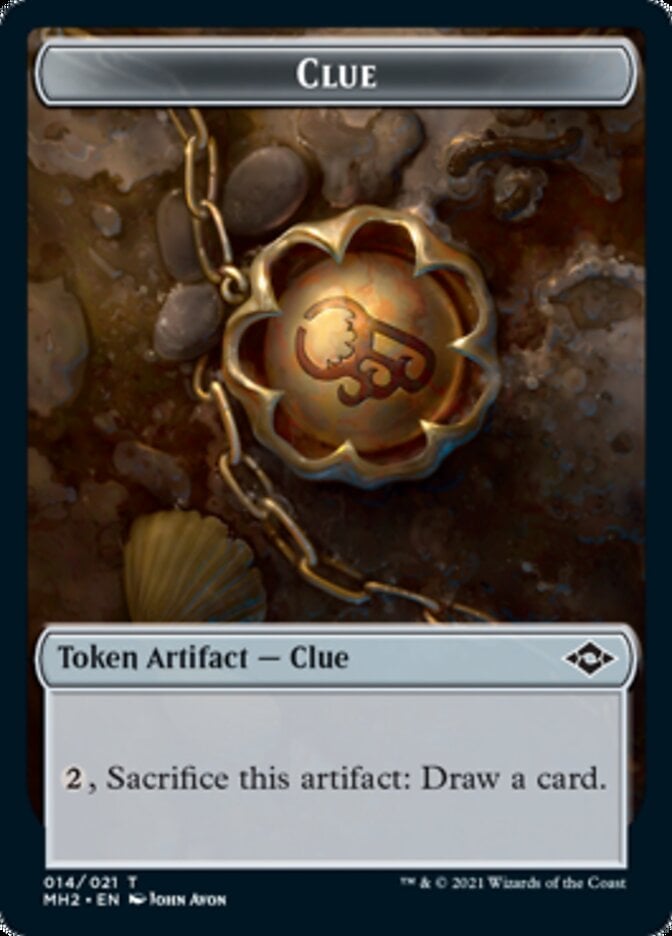
Clues are artifact tokens with the following text: “, Sacrifice this artifact: Draw a card.” Flavor-wise, a clue means information, and information in MTG is usually tied to drawing cards.
The most interesting aspect of a Clue token is that it synergizes with lots of strategies: tokens, drawing cards, artifacts, sacrifice effects, etc.
#27. Confront the Unknown
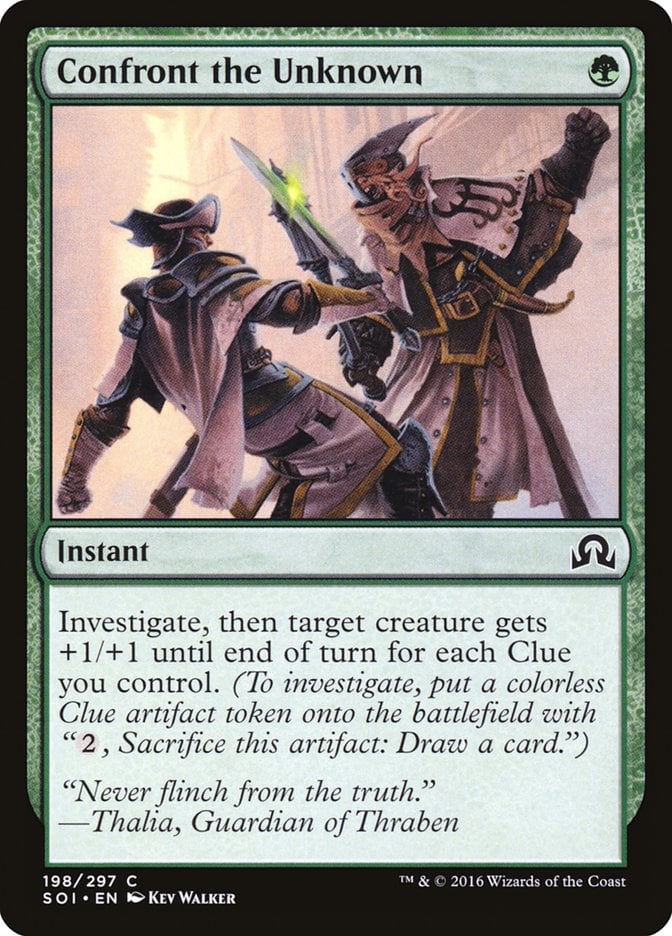
A 1-mana combat trick that’ll give you a card has some playability, and the more Clues you have, the better it gets. The synergies have to be in place, though, but Confront the Unknown is a bad combat trick.
#26. Foul Play
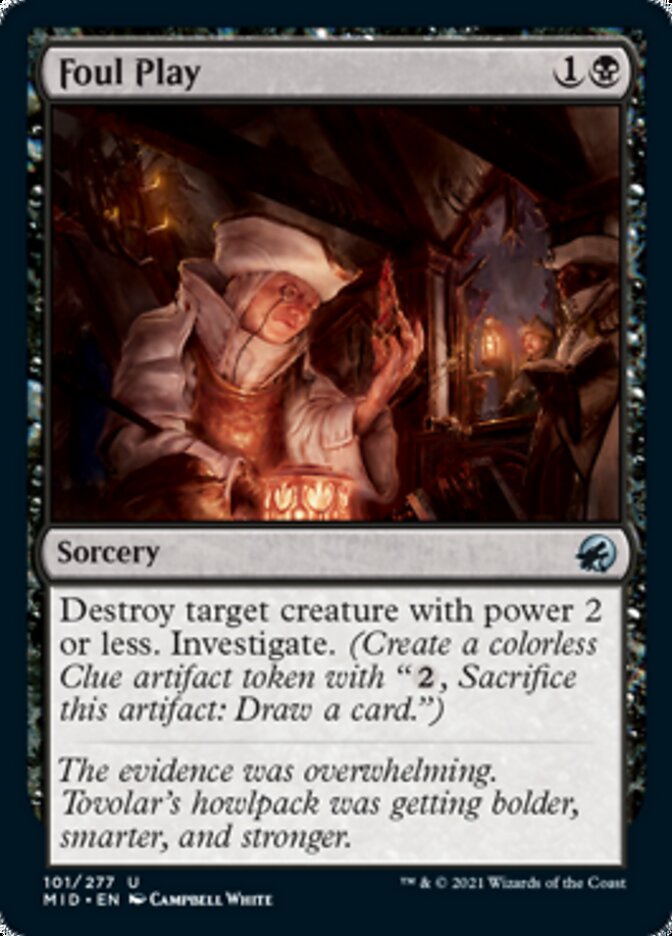
Foul Play as a conditional removal spell is nothing to write home about, but killing a 2-drop or less and drawing a card late is worth it.
#25. Confirm Suspicions
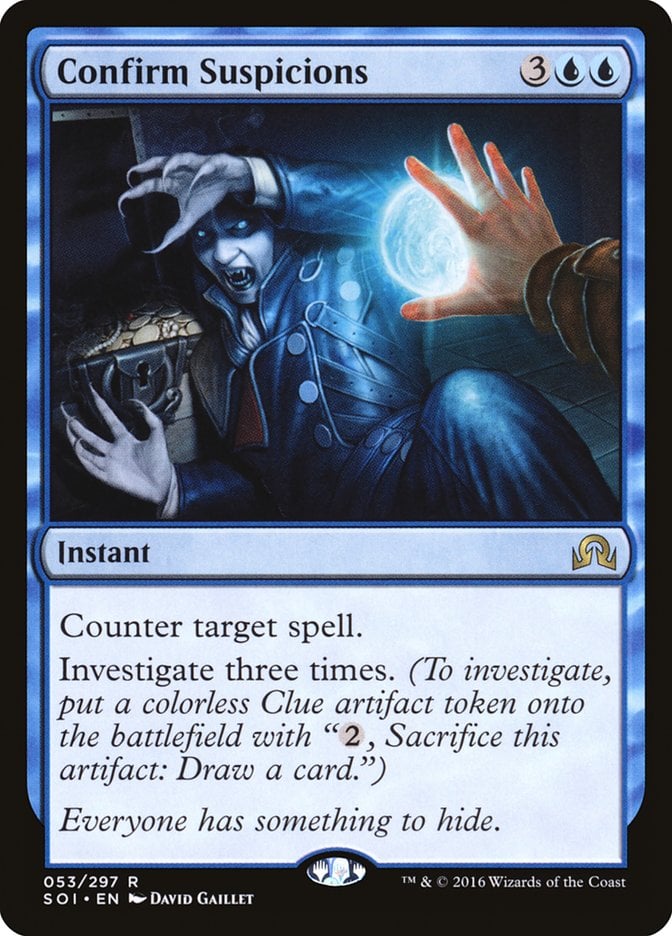
Confirm Suspicions is weird. Five mana to counter a spell is expensive, but the upside of investigating three times is very good.
This is playable in the right EDH deck with Clue synergies. I remember it being played as a 1-of in Standard at the time.
#24. Magnifying Glass
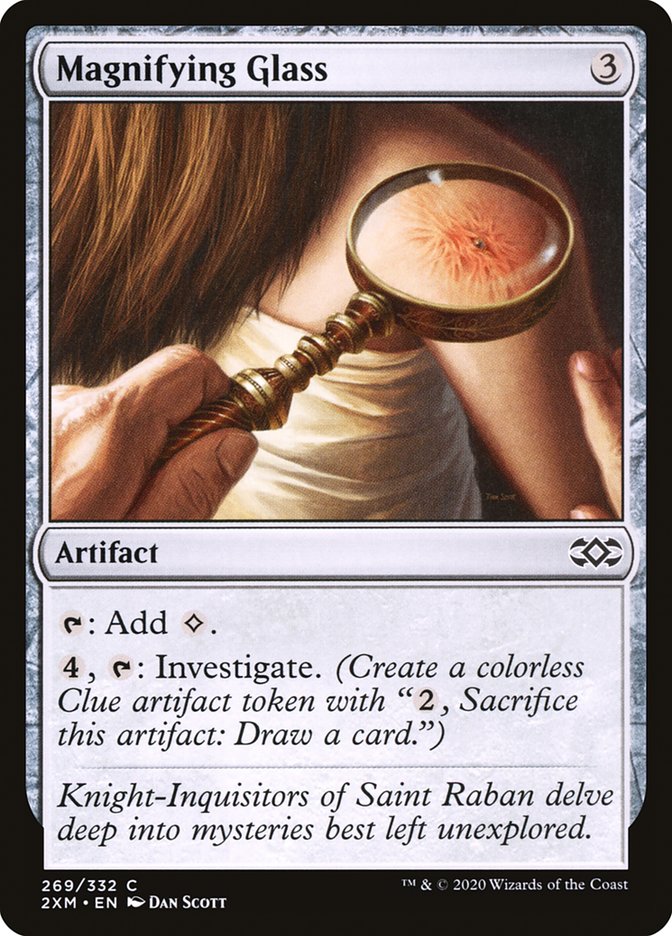
A 3-mana mana rock that lets you investigate every turn by paying four mana is a good deal.
#23. Ongoing Investigation
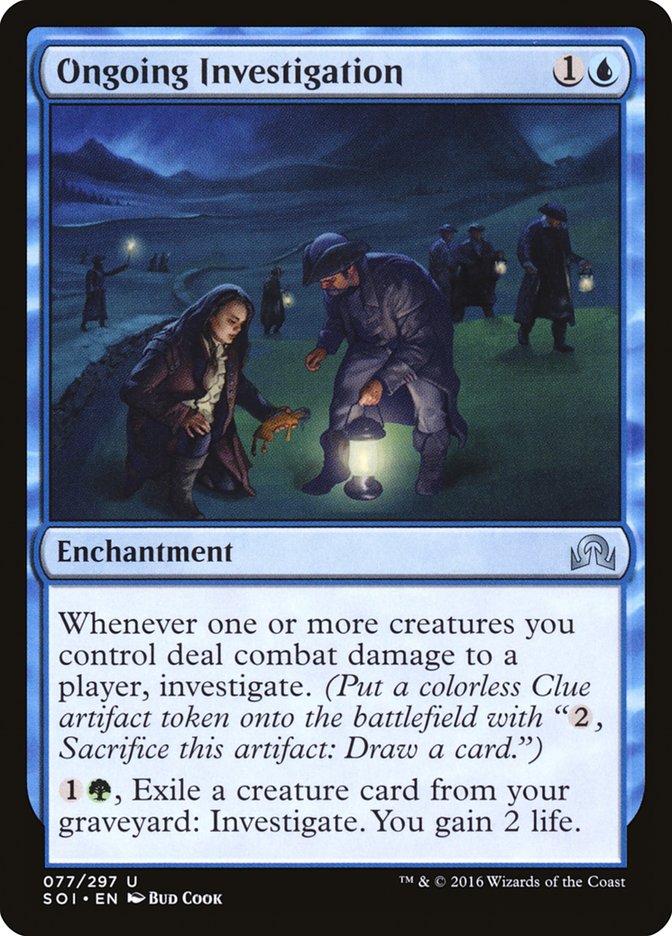
Ongoing Investigation is a nice card if you have evasive creatures/fliers, but there are also some enchantments that give you a card straight away when you deal combat damage.
#22. Bygone Bishop
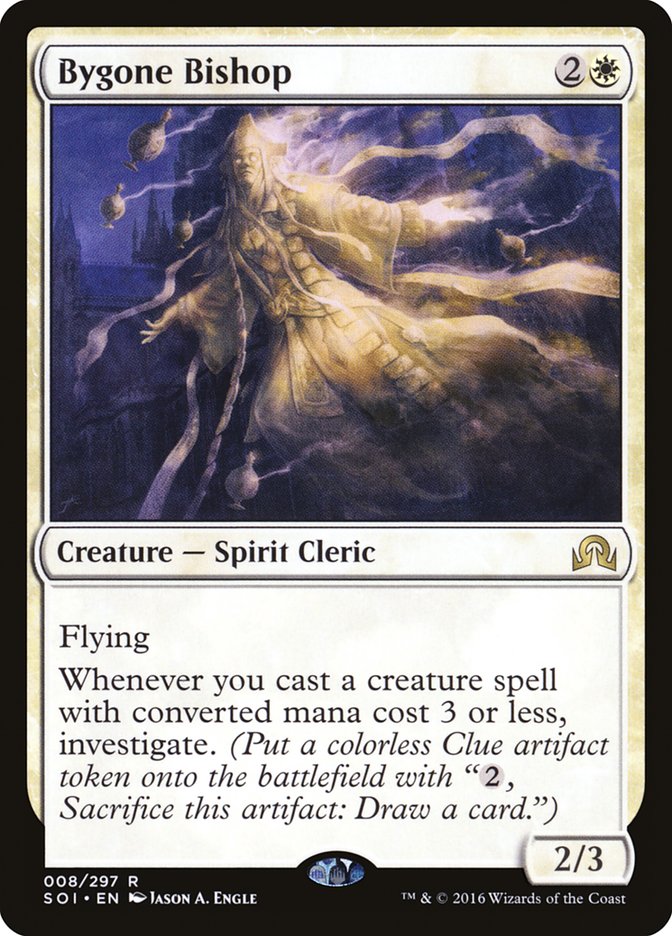
Bygone Bishop basically draws you cards for playing small creatures, which is similar to a lot of white creatures like Mentor of the Meek. This card slots well into aggro strategies and white fliers/spirits strategies.
#21. Declaration in Stone
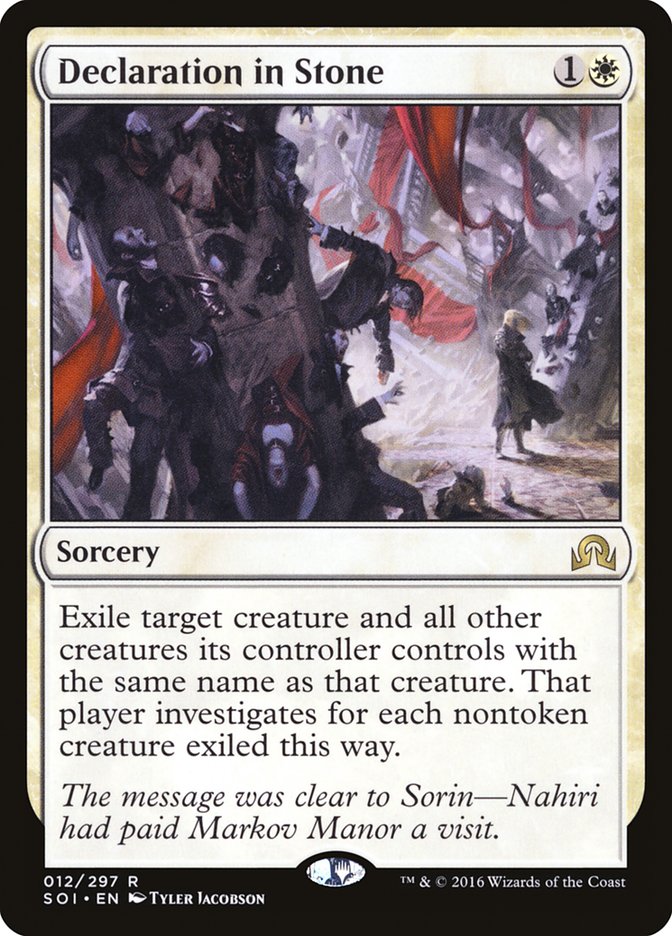
Declaration in Stone got lots of hype when it was released as a good removal/tempo play. But sorcery speed isn’t very desirable. A good thing is that it removes creature tokens cleanly, like if your opponents have loads of 1/1 Insects or Soldiers.
#20. Angelic Sleuth
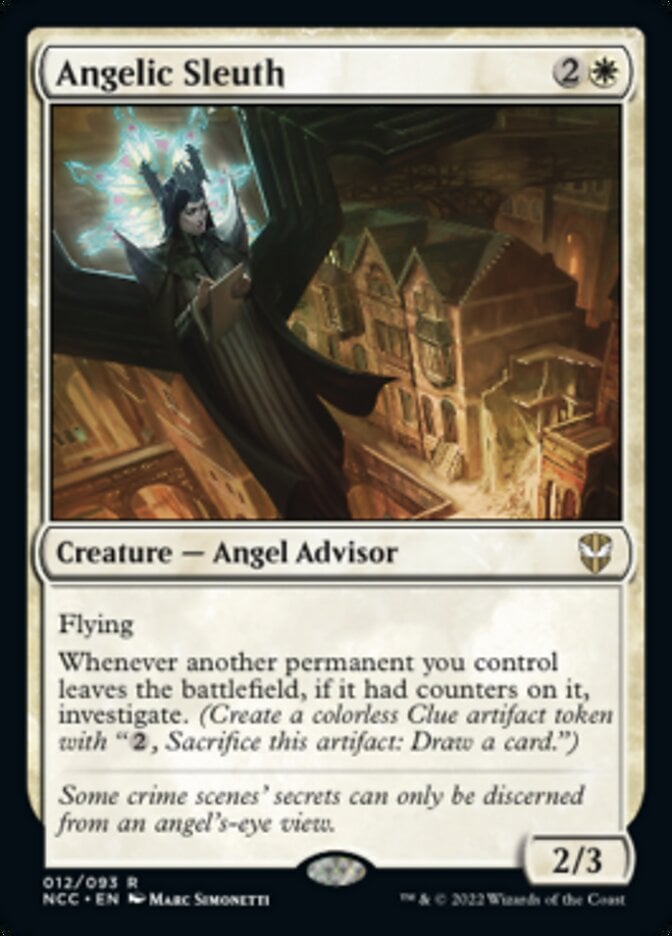
Angelic Sleuth will give you life insurance on permanents with counters if you’re playing with counters. It also synergizes well with strategies that blink creatures.
#19. Elmar, Ulvenwald Informant
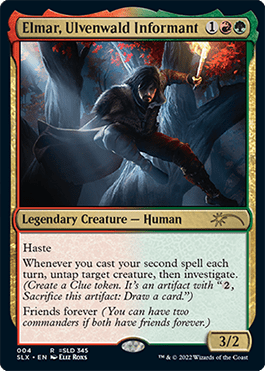
Although investigate isn’t Elmar, Ulvenwald Informant’s focus, Elmar is more of a storm commander. It even lets you untap a creature, which can provide mana for your next spells. Either way you’ll get a reward for casting two spells a turn, either by storming or by investigating.
#18. Ethereal Investigator
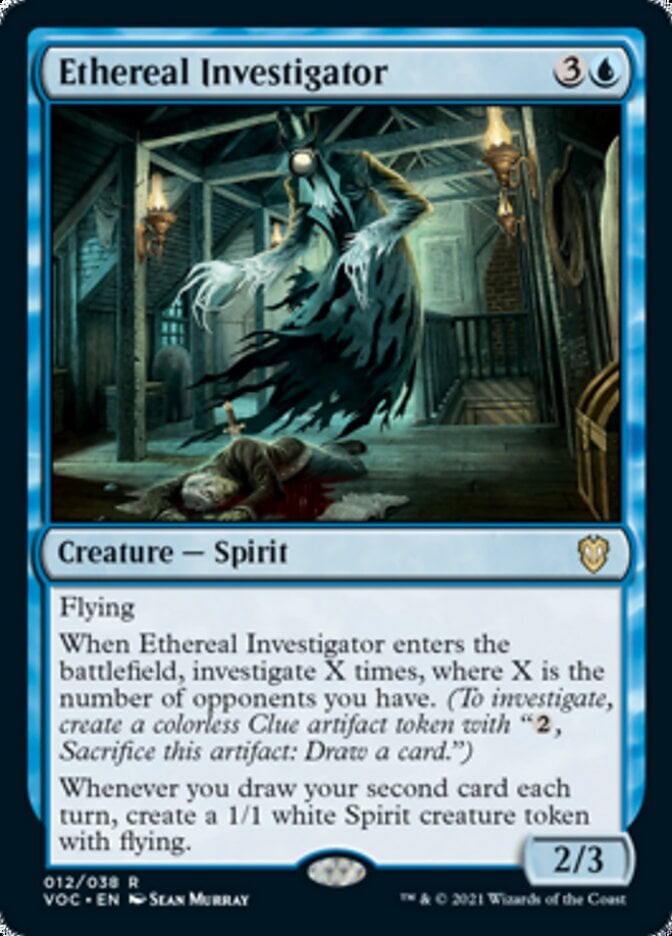
Investigating for each opponent is nice because it scales, being a good option for EDH. Besides, Ethereal Investigator fits in decks that draw lots of cards and in spirit tribal.
It’s also a good fit in Lonis, Cryptozoologist decks since you’ll be making a lot of Clues and sacrificing them for profit.
#17. Havengul Laboratory / Havengul Mystery
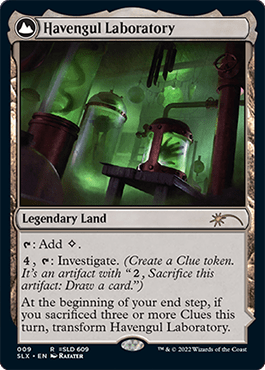
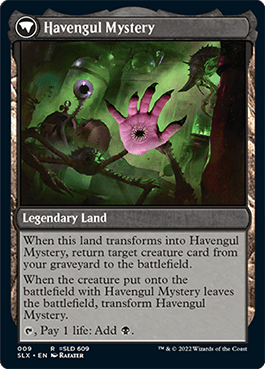
Double-faced cards that transform back and forth are weird, but here’s what happens: Havengul Laboratory investigates for four mana, which is on par with Magnifying Glass. If you sacrifice three or more Clues then you get Havengul Mystery, which reanimates a creature. It changes back to the Laboratory when you lose the reanimated creature.
Either way, getting some cards and reanimating something down the line is an interesting effect on a land. And there are cards like Tamiyo's Journal and Lonis, Cryptozoologist to crack multiple Clues a turn.
#16. Secrets of the Key
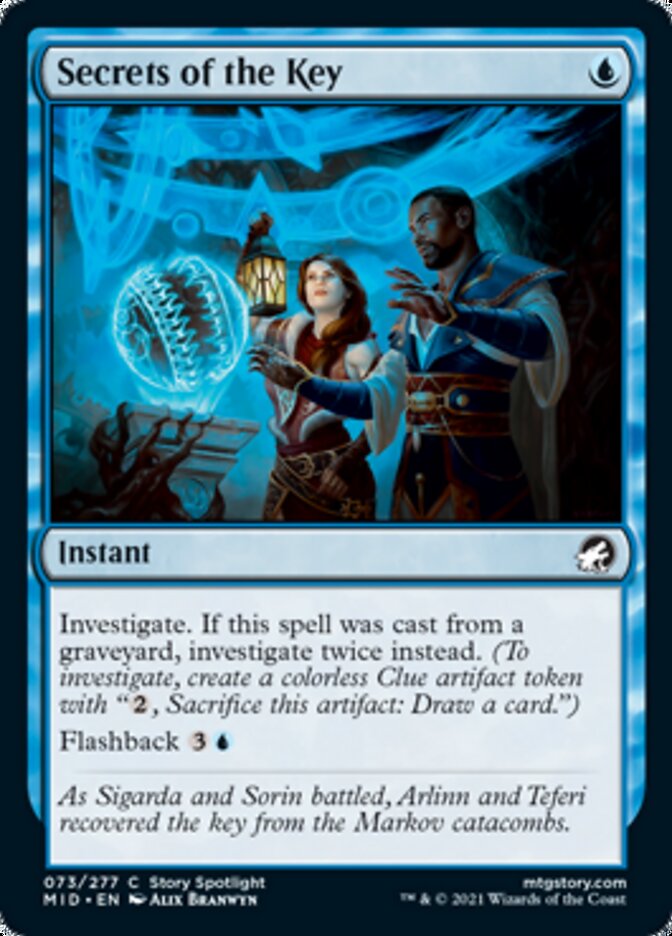
Secrets of the Key is a way to draw more cards and cantrip through your deck similar to cards like Think Twice. But this is too slow outside of Commander, and the Clue synergies aren’t there.
#15. Wave Sifter
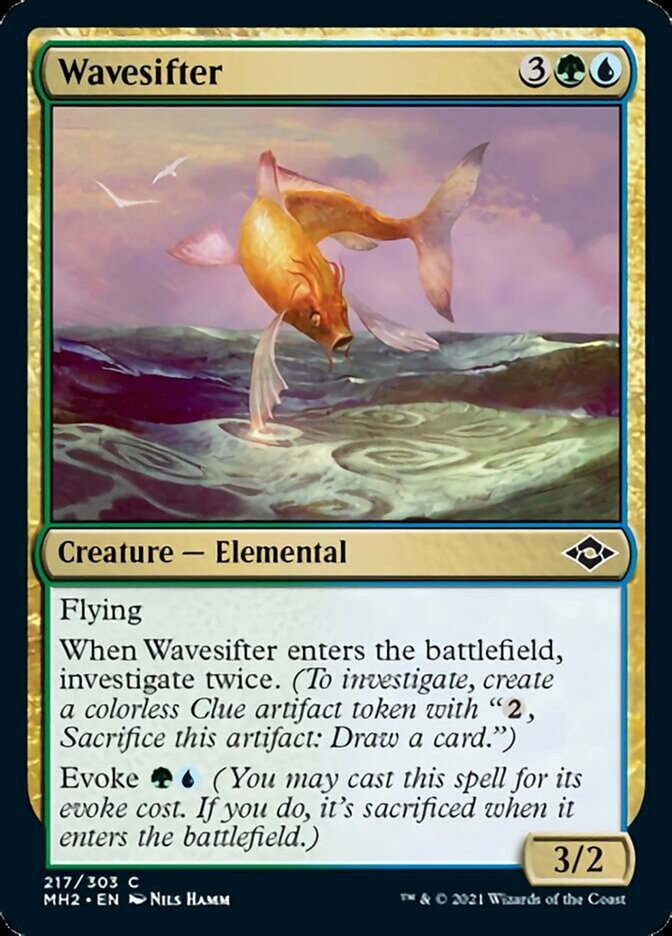
A fixed Mulldrifter, Wavesifter has seen play in Modern decks thanks to the Clues it makes and cards like Glimpse of Tomorrow. This is one of the cases where making a token is better than straight card draw. Pauper decks also like this as an artifact maker for metalcraft/affinity purposes.
#14. Tamiyo's Journal
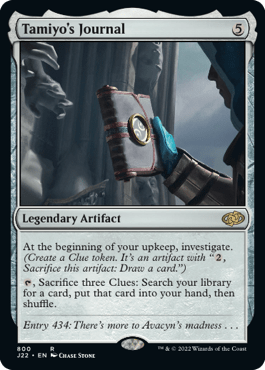
Tamiyo's Journal gives you a free tutor every turn in a deck that can steadily produce tokens, which is a powerful effect. And investigate every turn isn’t bad either.
#13. Search the Premises
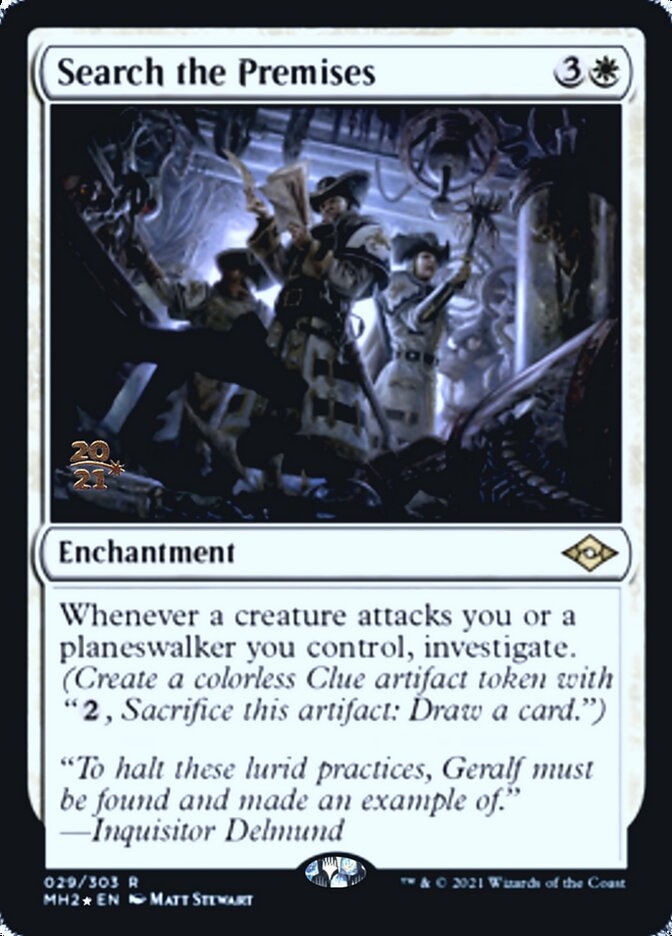
Search the Premises is interesting in the more defensive configuration of white decks and prison decks, especially in EDH. There are also lots of white cards that care about the number of artifacts and enchantments you have, so these numbers are being pumped even if you’re not drawing more cards.
#12. Sophina, Spearsage Deserter
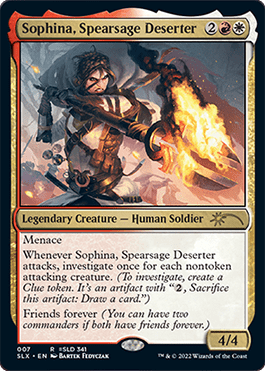
Sophina, Spearsage Deserter will investigate a lot in Boros () attack-oriented decks. Just keep in mind that tokens won’t do the trick. Boros also has synergies with metalcraft/affinity, so that also helps.
#11. Wernog, Rider's Chaplain
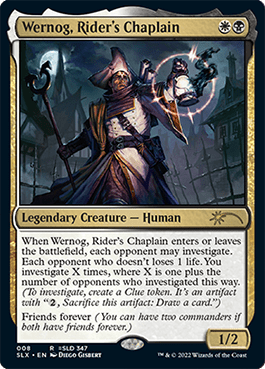
A 1/2 for two that investigates once is already fine, but then in a multiplayer game you can make a tempting offer to everyone using Wernog, Rider's Chaplain. It's worth noting that those who don’t investigate lose a life, which is abusable in some scenarios.
#11. The Seventh Doctor
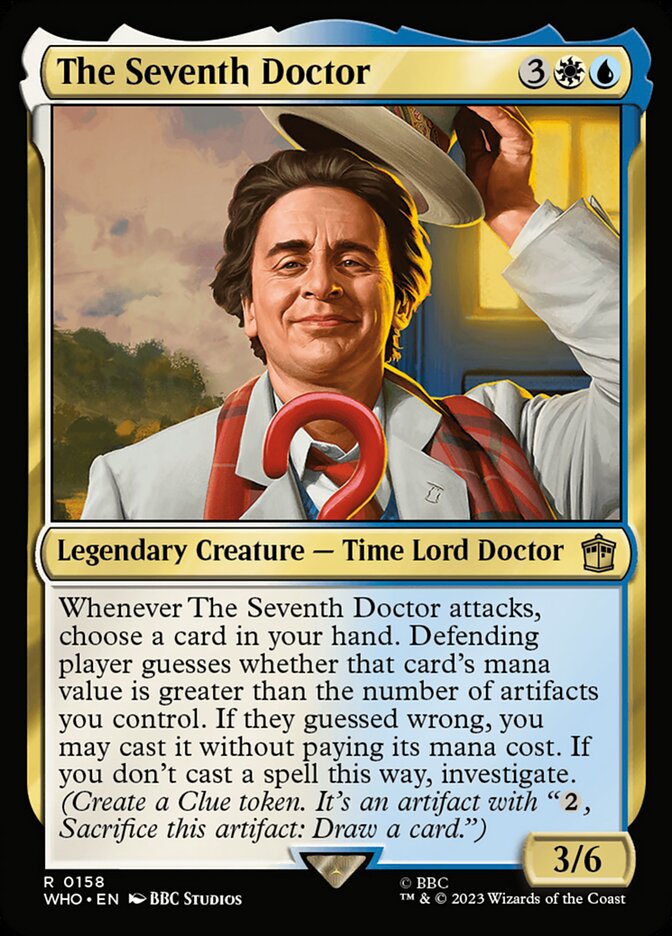
The Seventh Doctor is all about investigating and having artifacts in play. Odds are, you'll get a clue token half the time you attack with this card. That seems kind of bad, but when you realize that you can also cast some insane cards for free on the other hand, this card gets a whole lot better!
#10. Tivit, Seller of Secrets
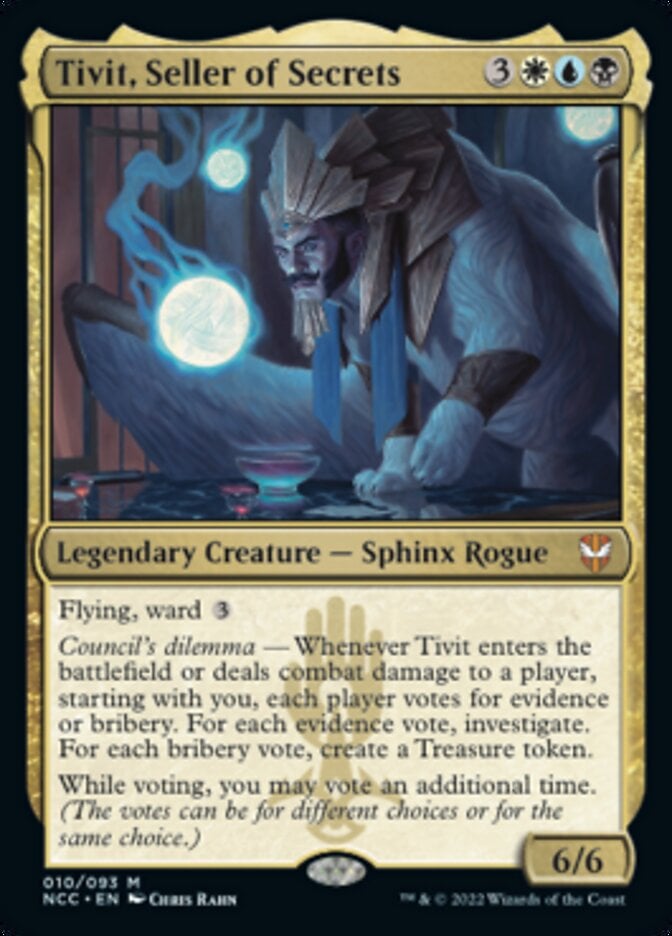
A voting commander! For those who want interactive gameplay, you’ll get some Treasure or Clue tokens when someone vote because of Tivit, Seller of Secret’s trigger. That allied to a 6/6 flying ward body is reasonable.
You’re also incentivized to put other voting cards since you’ll get an additional vote.
#9. Thorough Investigation
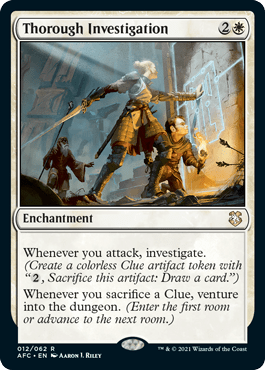
White lacking card draw is basically a meme at this point, but Thorough Investigation is actually a good way to keep your hand full. It takes just one attack in a turn to investigate and usually draw an extra card a turn.
#8. Dennick, Pious Apprentice / Dennick, Pious Apparition
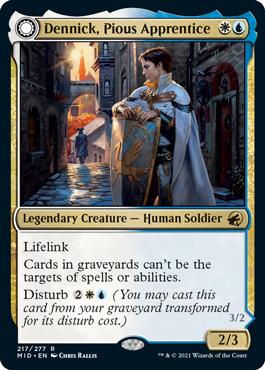
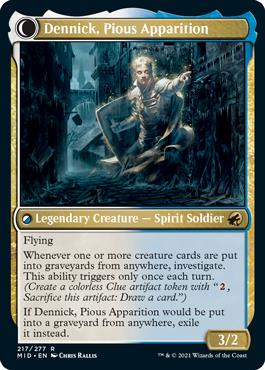
Dennick, Pious Apprentice is a two-faced card. The front side is a 2/3 with lifelink for , which is a good speed bump. The back side is a 3/2 with flying that makes your creatures investigate when they go to the graveyard.
This fits with a lot of stuff, including discard and mill. This flexibility makes Dennick playable in main decks and sideboards alike.
#7. Ulvenwald Mysteries
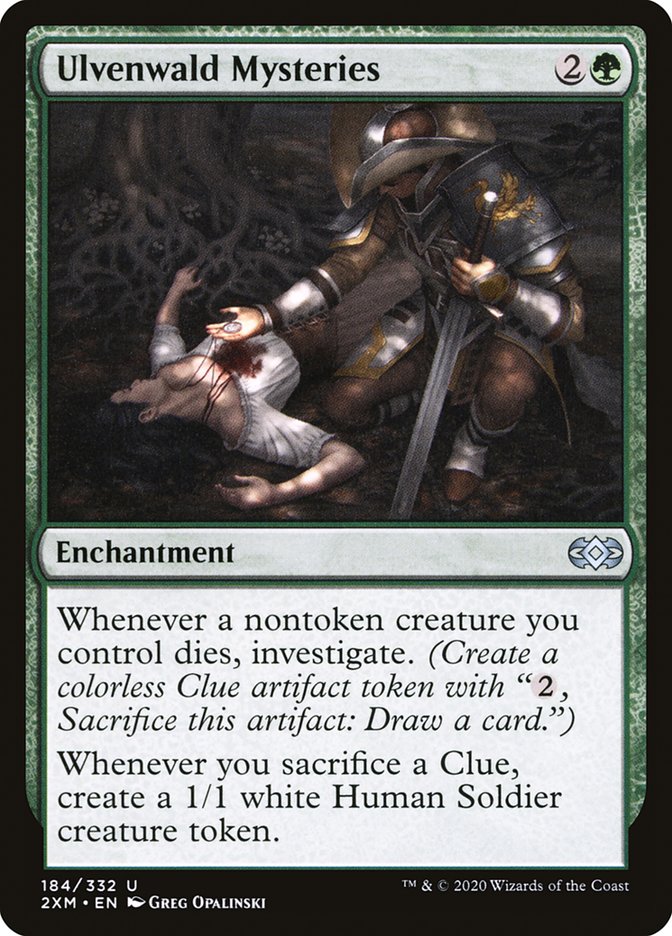
Ulvenwald Mysteries slots well into Selesnya () or green aristocrat strategies because you’ll investigate a lot. It’s like you get an extra card whenever a creature dies.
And you’ll get a 1/1 token when you crack a Clue, which is a card that I'd play in decks that produce lots of Clues anyway.
#6. Disorder in the Court
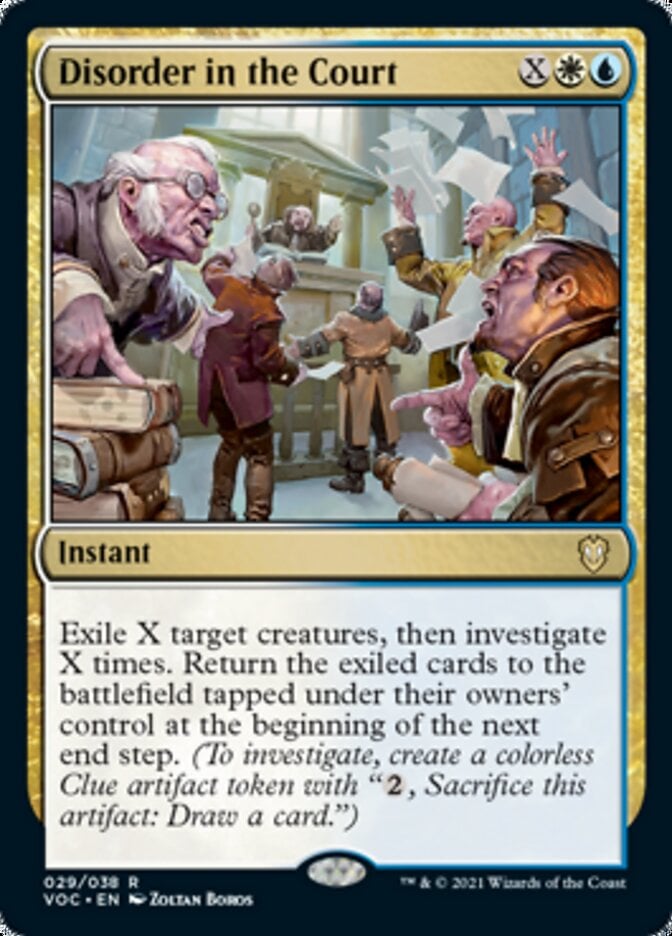
A mass blink and investigate, Disorder in the Court is interesting. You blink your ETB creatures, kill enemy tokens, reset creatures with counters or auras, all while triggering exile-matters effects and investigating.
#5. Hard Evidence
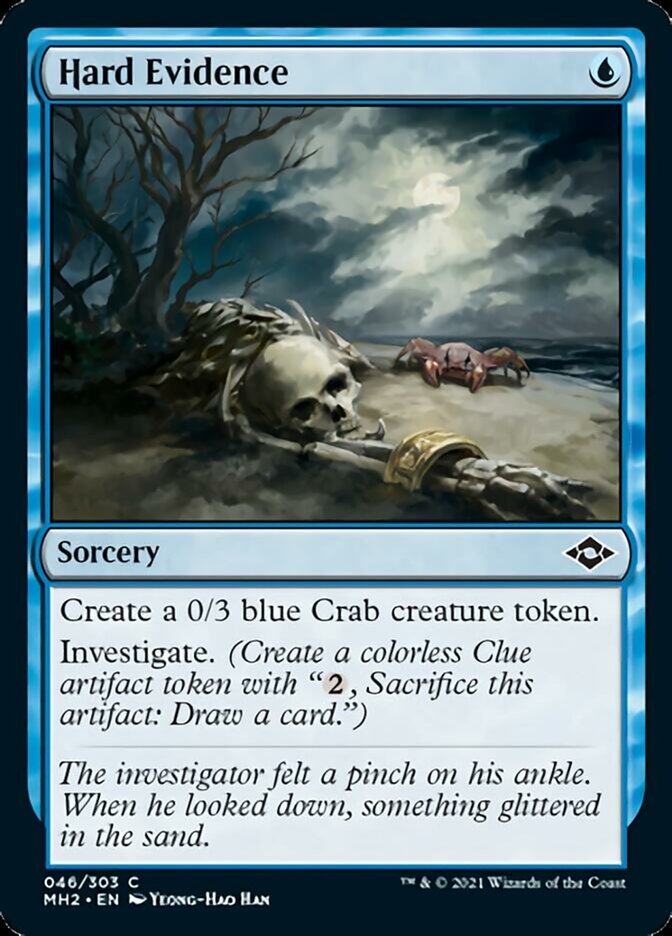
Blue Thraben Inspector here, but worse in a lot of ways since the creature can’t be blinked. If creating two tokens is better then a creature, then go for Hard Evidence.
#4. Thraben Inspector
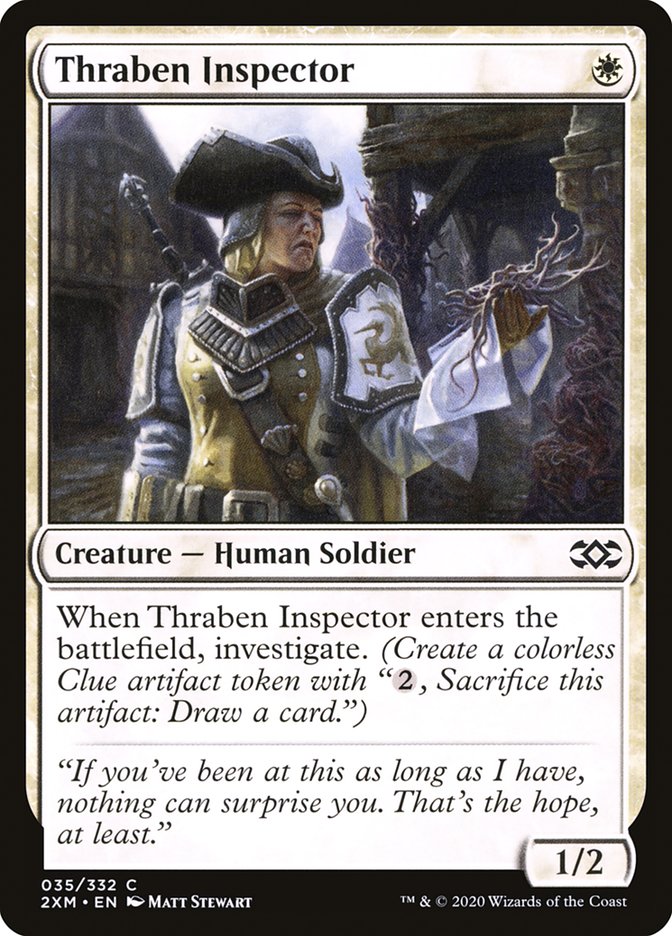
A very impactful 1-drop in a lot of formats, Thraben Inspector is also a human. A 1/2 for one mana is okay and this usually gives you an extra card, which isn’t dead in the late game.
Keep in mind that Thraben Inspector can be blinked.
#3. Fateful Absence
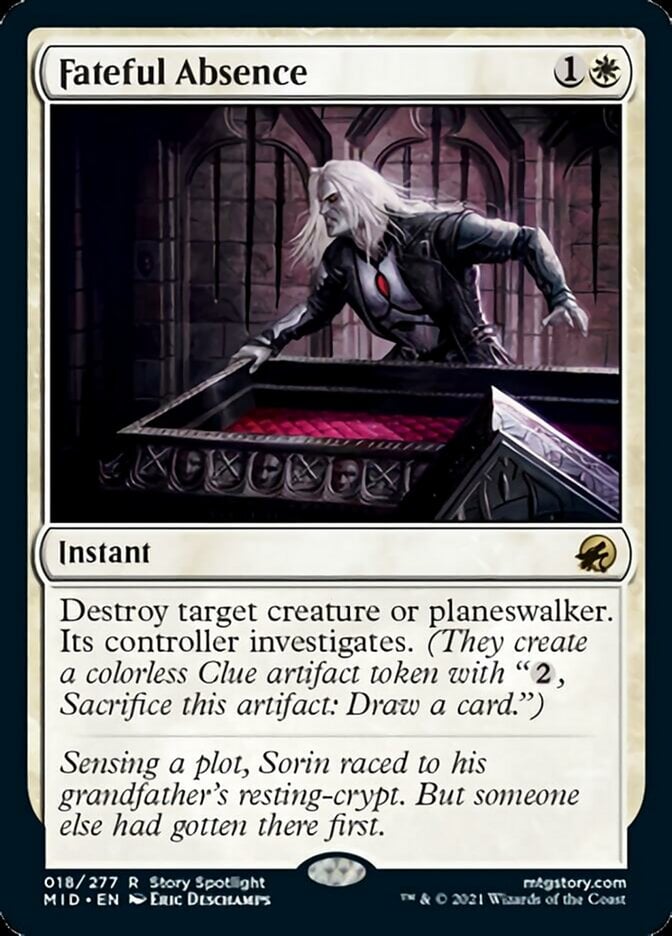
Fateful Absence is a removal spell that impacts formats like Historic and Pioneer. Not only is it two mana for instant-speed removal, you can also deal with your opponent’s planeswalker.
The irony is that your opponent is the one to investigate, which is a considerable downside.
#2. Eloise, Nephalia Sleuth
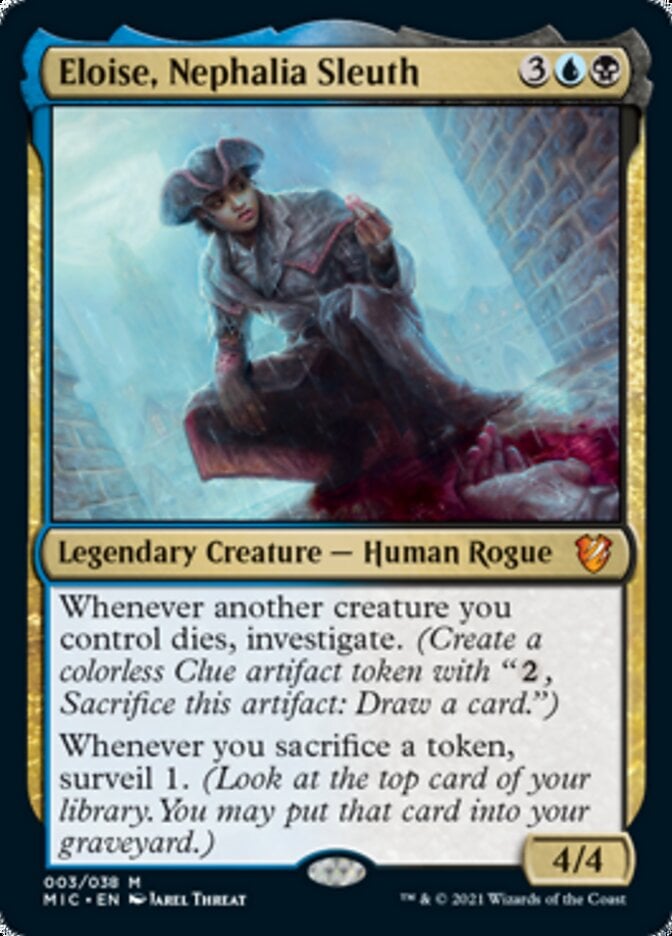
One of the few investigate themed commanders out there, Eloise, Nephalia Sleuth can be built as a sacrifice deck that produces lots of tokens. You’ll draw a lot of cards and surveil this way.
As far as Dimir () commanders go, Eloise is a very popular one.
#1. Tireless Tracker
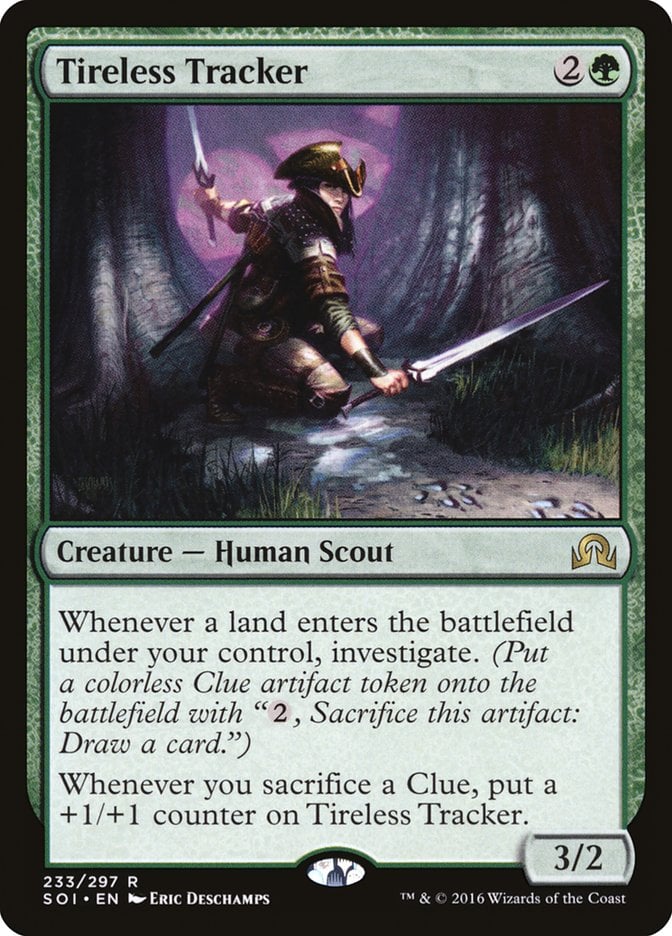
Tireless Tracker impacted a lot of formats, from Standard to Modern to EDH. Investigating each time a land enters the battlefield is huge, and playing that against an opponent that relies on removal is a big bonus.
Not to mention that Tireless Tracker gets even better with fetch lands.
Best Investigate Payoffs
Some cards will give you that extra benefit for creating those Clue tokens.
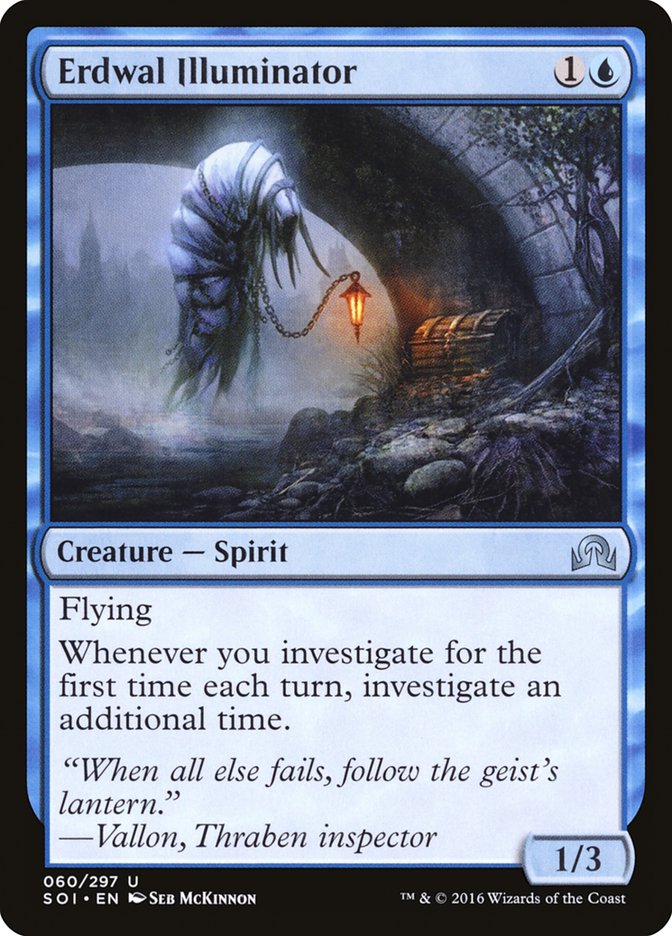
Erdwal Illuminator lets you investigate twice instead of once.

Ulvenwald Mysteries produces a 1/1 token every time you sacrifice a Clue.
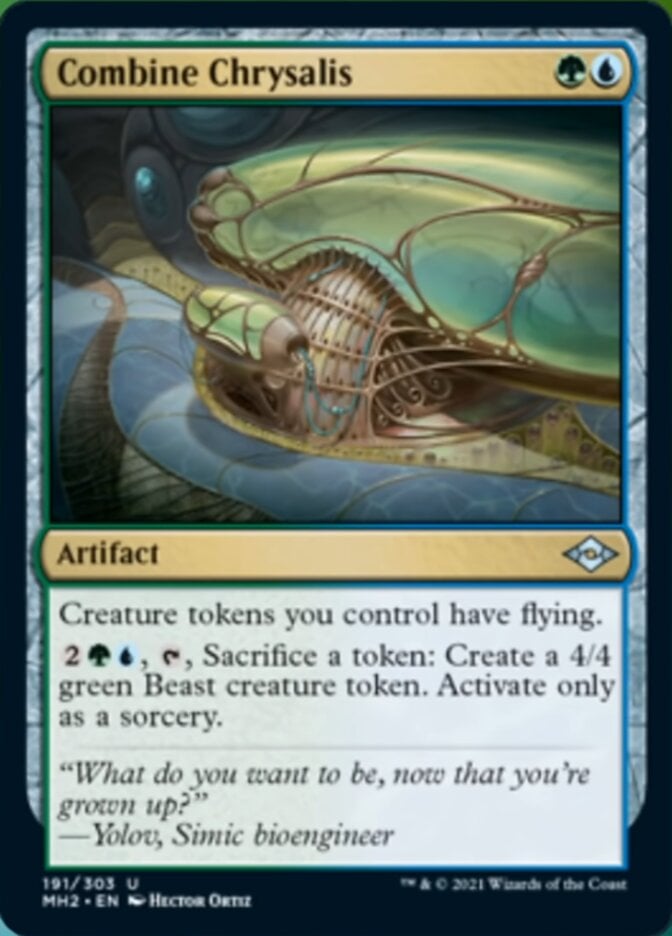
Combine Chrysalis can turn your Clues into 4/4 fliers.
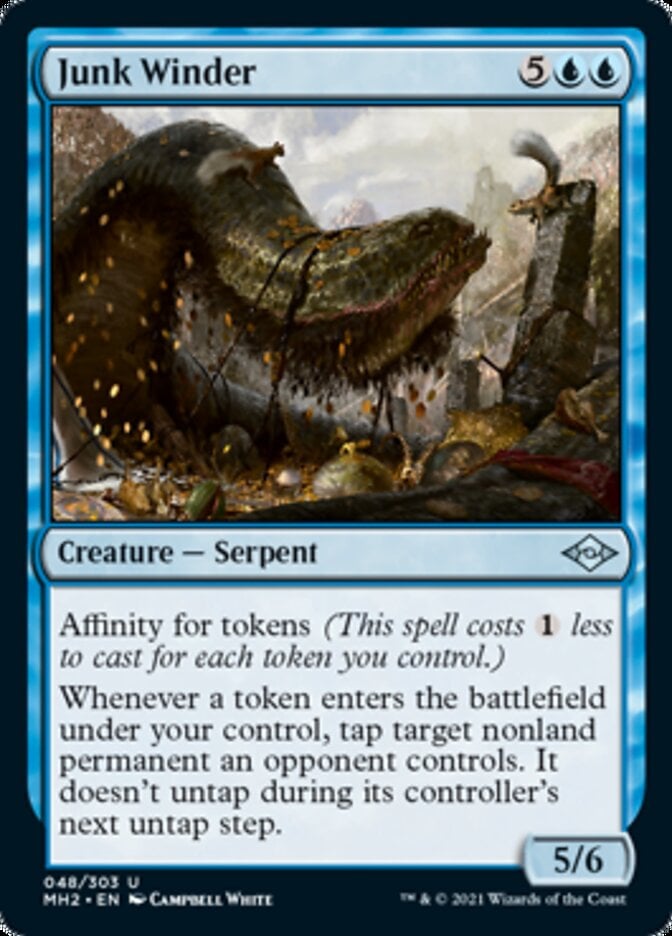
Junk Winder has affinity for tokens, and since Clues are tokens, well, you get the idea.
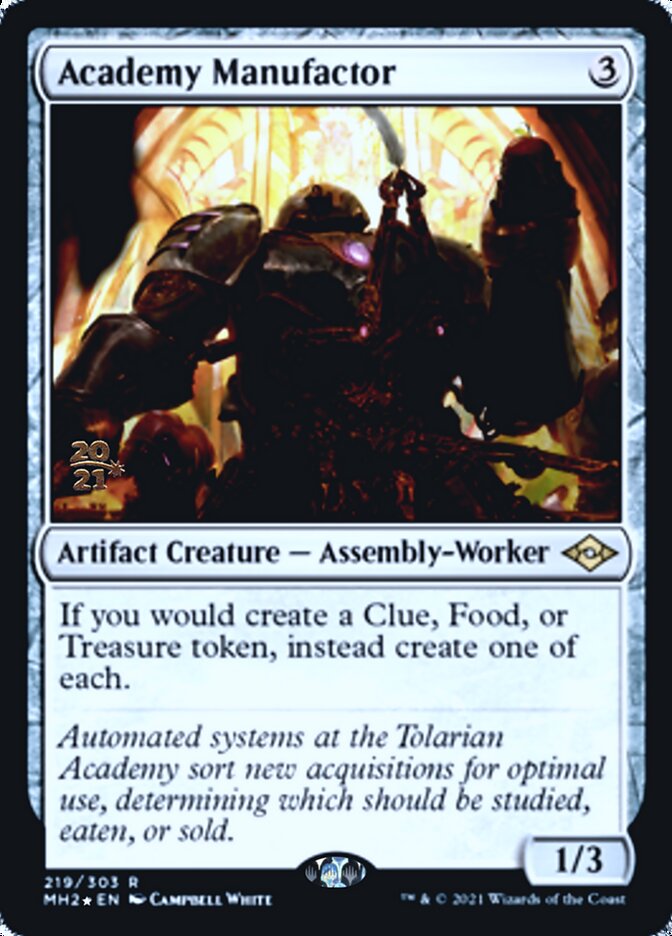
Academy Manufactor creates a Clue, a Food, and a Treasure when you investigate.
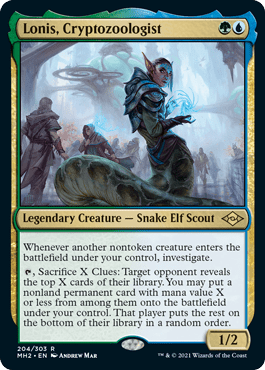

Lonis, Cryptozoologist benefits you for sacrificing lots of Clues, as will Tamiyo's Journal.
Adrix and Nev, Twincasters is a commander that produces tokens in double, like Parallel Lives.
There are also, of course, mechanics that care about artifacts (like metalcraft, affinity, and improvise), like Clues since they’re artifact tokens.
Are Clue Tokens Good? Is Investigate?
We can evaluate a Clue token as a 2-mana draw a card. I think it’s like a mana sink ability. Creatures that have an ability like “X mana, draw a card” are usually good. Or cards that have the option to pay two mana more to draw a card, like a kicker.
It’s also worth noting that this can be used to bridge lots of themes since a Clue token made by the investigate mechanic is an artifact that’s sacrificed, like artifacts matter, sacrifice matter, and tokens matter. Since players like Clue tokens and investigate makes them, then yes, investigate is very good. It was a good mechanic in Shadows over Innistrad, and also in Modern Horizons 2.
Are Food and Clue Tokens Artifacts?
Yes, Food and Clue tokens are artifacts. Artifact tokens like Food, Clue, Blood, and Treasure are very common nowadays, and various sets make use of them.
Do Clue Tokens Go to the Graveyard?
Yes and no. When Clue tokens are sacrificed, they're put into the graveyard, which means abilities like Disciple of the Vault and Marionette Master trigger. But there's another rule that says that a token only exists on the battlefield: “if it were to change zones, it ceases to exist.” So, it’s put into the graveyard, and then removed from the game due to state-based actions.
Can You Pithing Needle a Clue Token?
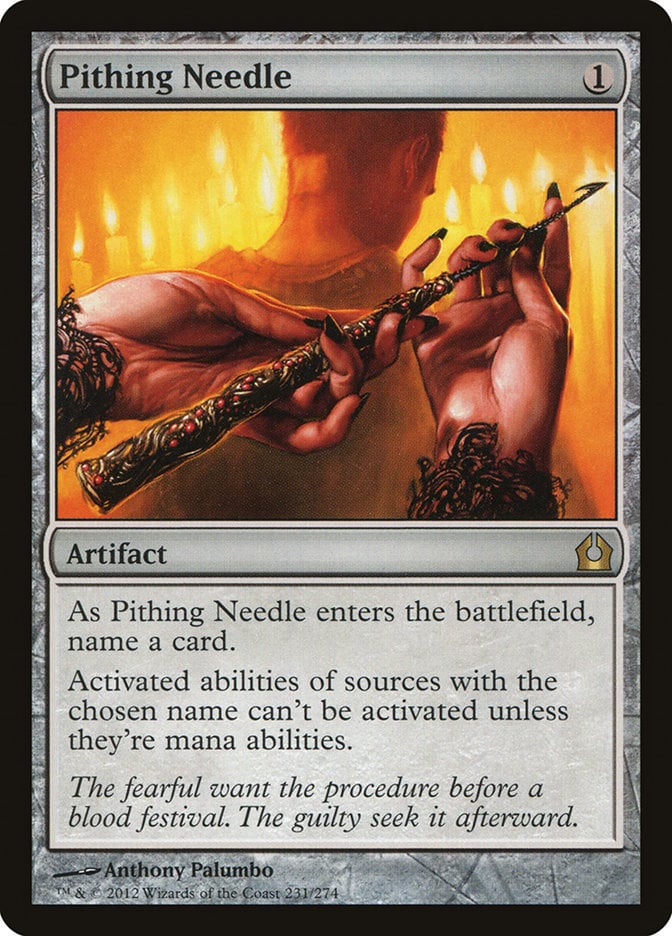
In the special rules regarding Pithing Needle, it’s stated that it only works with a card that has a name. You can't name a token unless that token has the same name as a card. So, no, you can’t use cards like Pithing Needle to prevent your opponents from cracking Clues and drawing cards.
How Do You Stop or Counter Clues?
There are a few ways to stop or counter Clues.
Karn, the Great Creator and Stony Silence stop your opponents from activating the abilities of all artifacts, including Clue tokens.
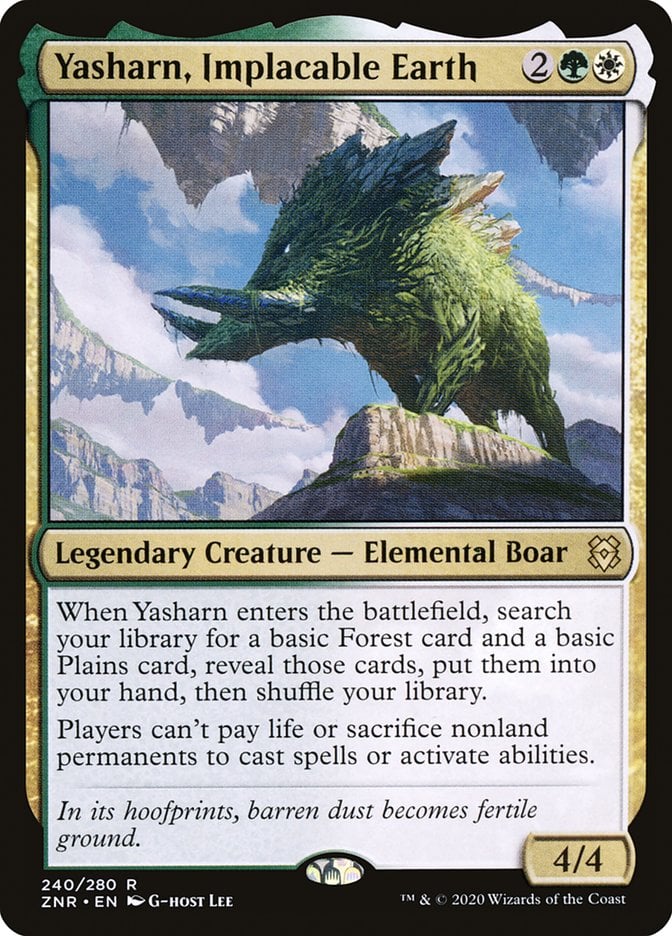
Yasharn, Implacable Earth shuts down abilities that require you to sacrifice a permanent.
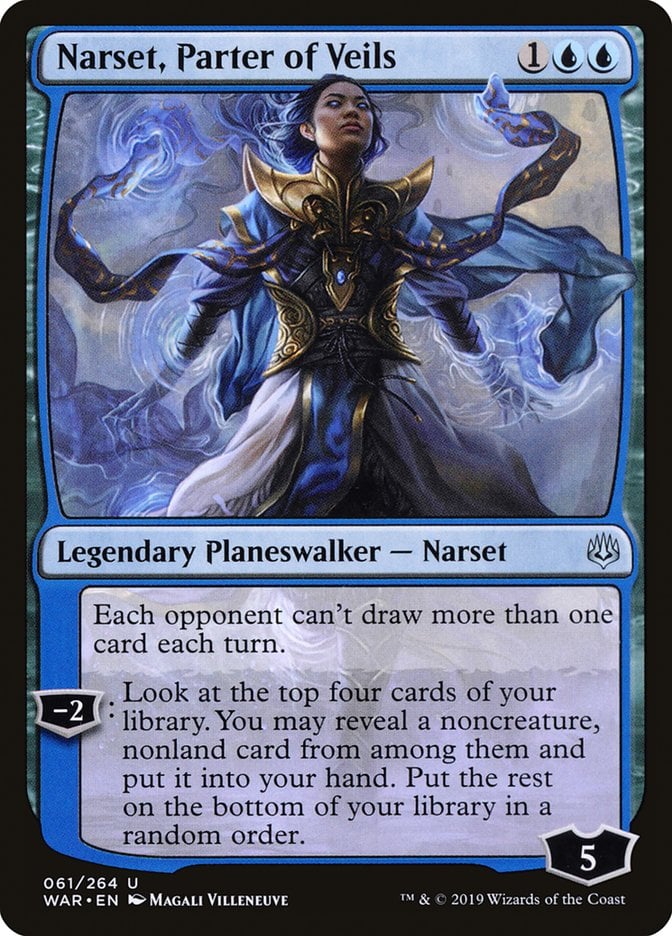
Cards like Narset, Parter of the Veils slow your opponents since it restricts them to drawing one card per turn.
Mayhem Devil won't stop a Clue from being cracked, but it will punish your opponents now and then, as will Disciple of the Vault.
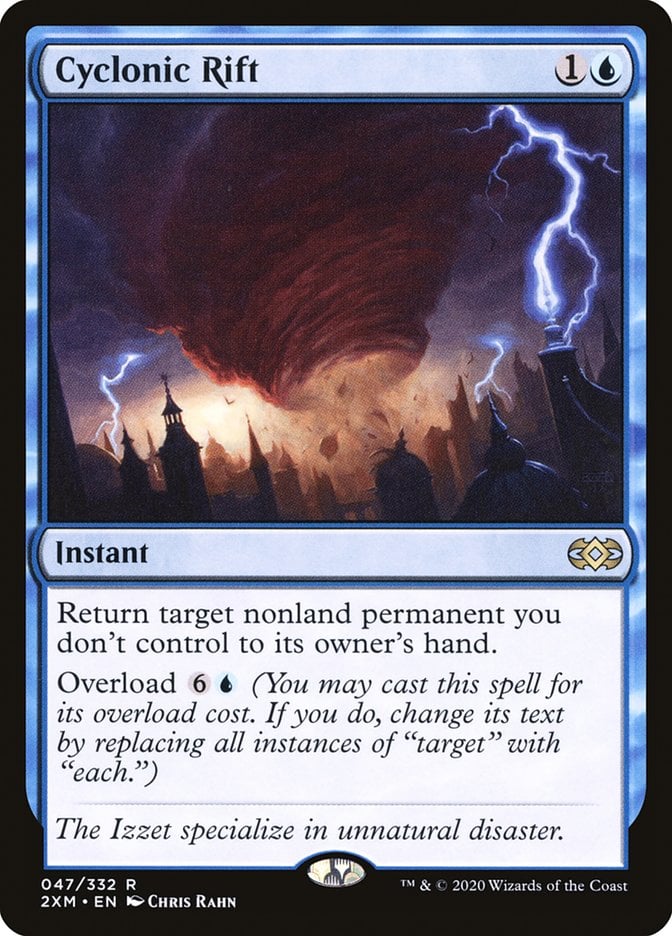
If your opponent is tapped out, the Clue tokens can be bounced or destroyed. If your opponent has lots of Clues, you can even bounce them all at once with Cyclonic Rift.
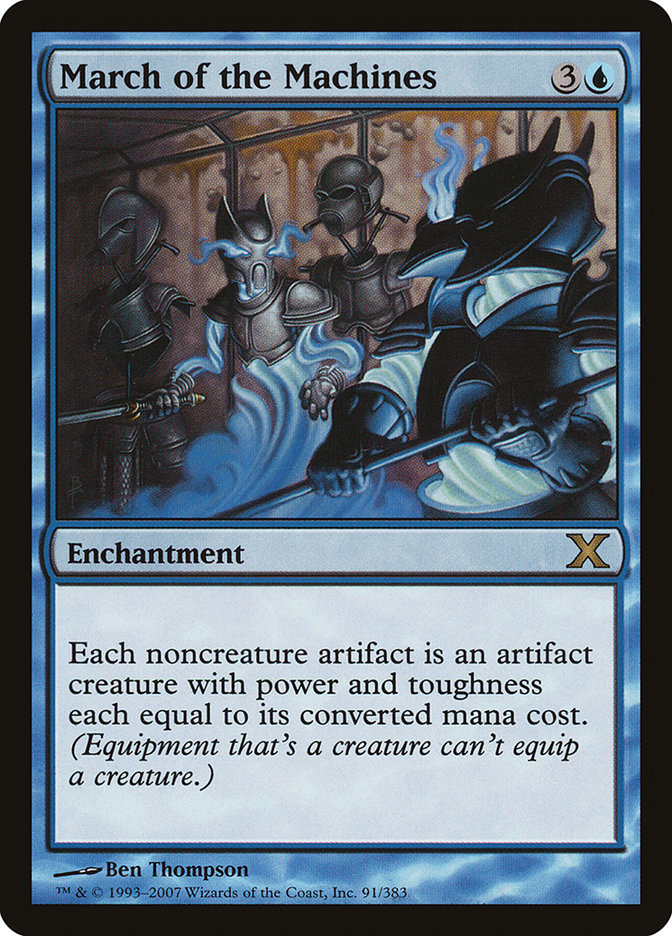
Cards like March of the Machines converts Clues into 0/0s, which then die.
Mass artifact removal like Farewell or Austere Command gets rid of Clue tokens.
Wrap Up
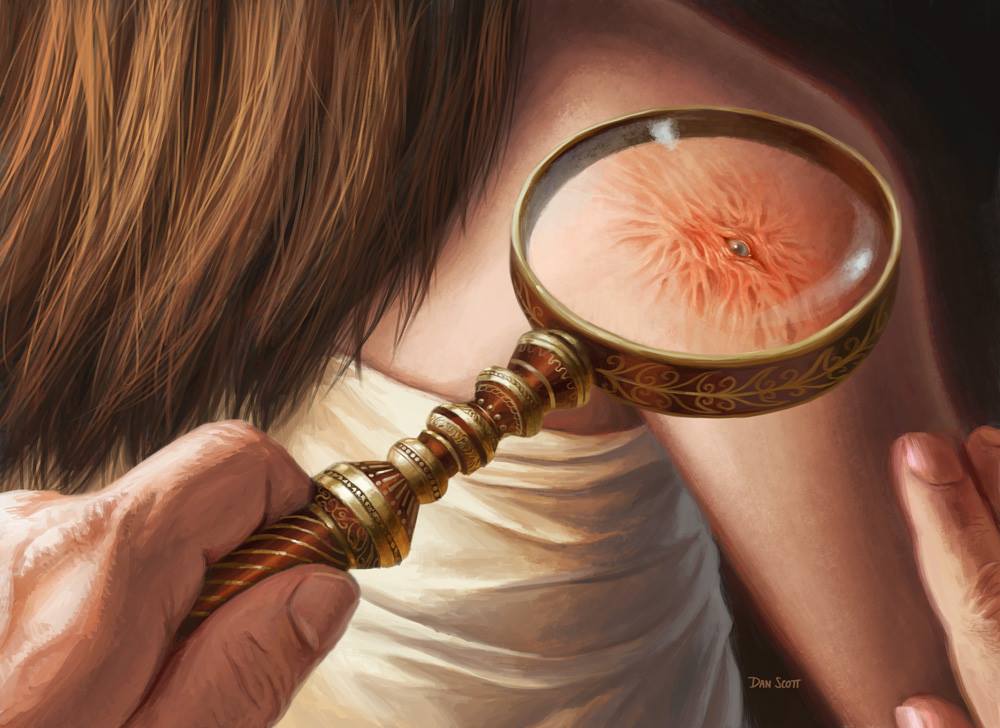
Magnifying Glass | Illustration by Dan Scott
Investigate can be considered as drawing a card, except it’s a more balanced way of doing this. It adds some synergies that can be explored, like for token and sacrifice decks. It’s safe to say that these artifact tokens are here to stay judging by the influx of Clue-, Treasure-, and Food-producing cards.
What about you? Do you have a Clue Commander deck? What cards from this list would you play in your decks? Please leave your answers in the comment section below or over on the Draftsim Twitter.
Thanks so much for reading. I hope to see you all next time!
Follow Draftsim for awesome articles and set updates:
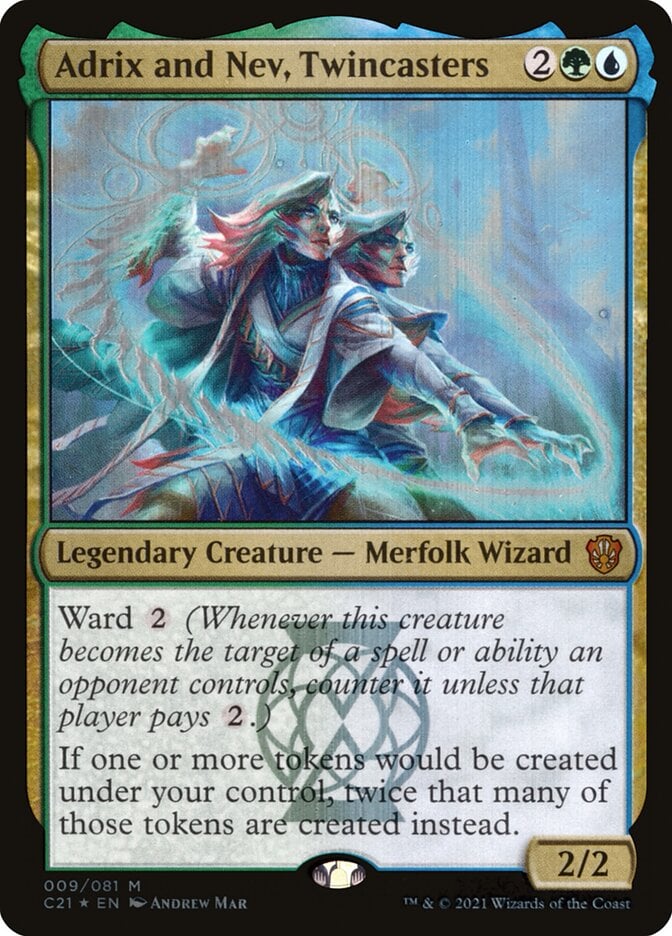
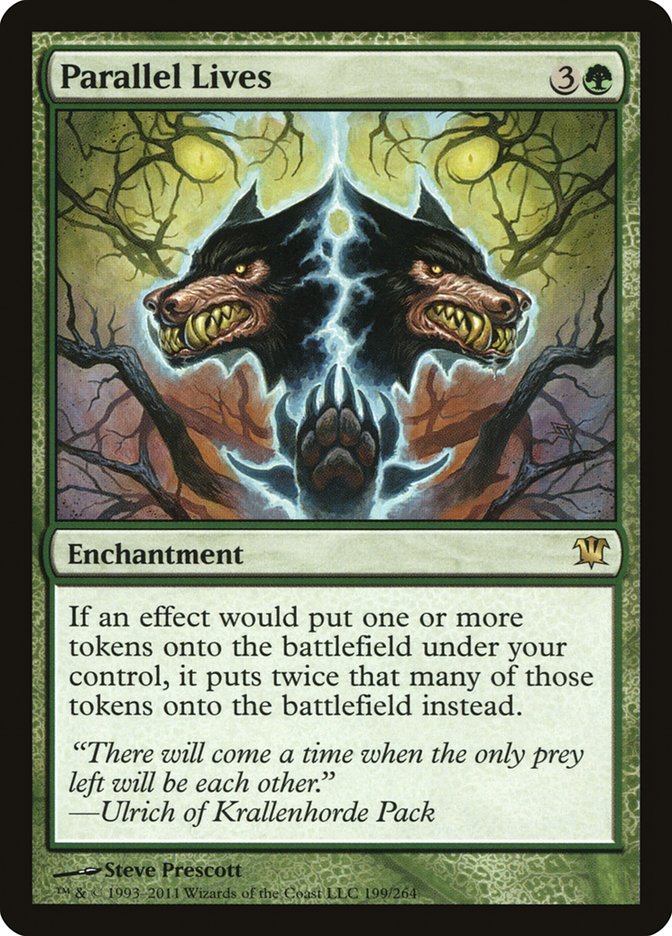
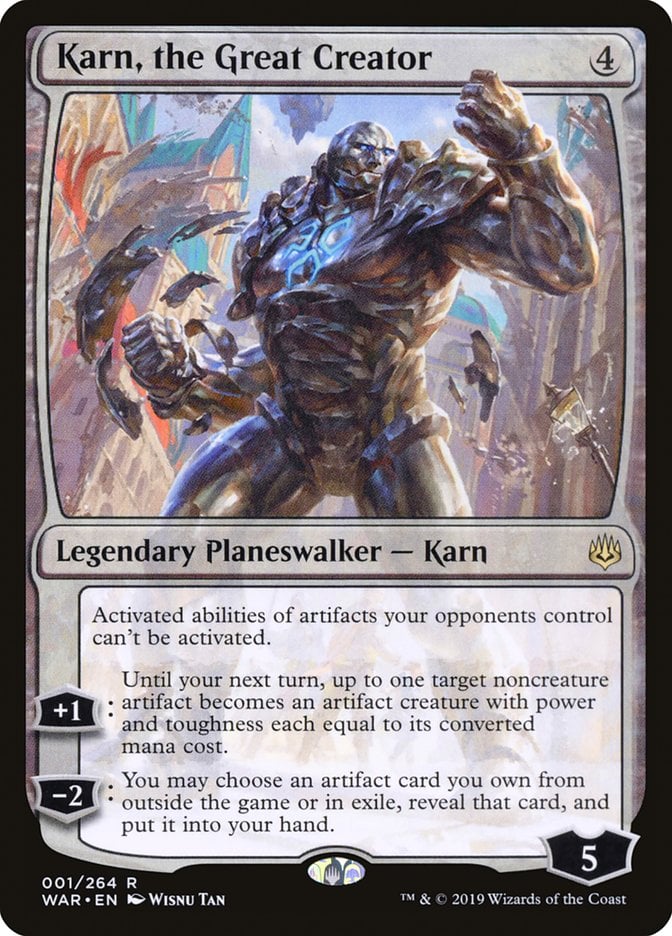
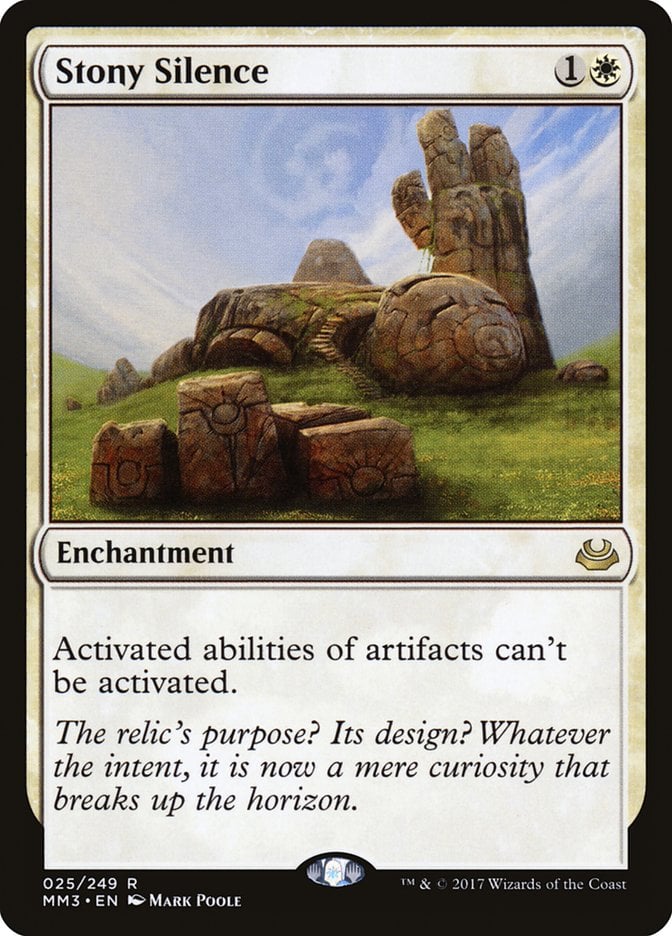
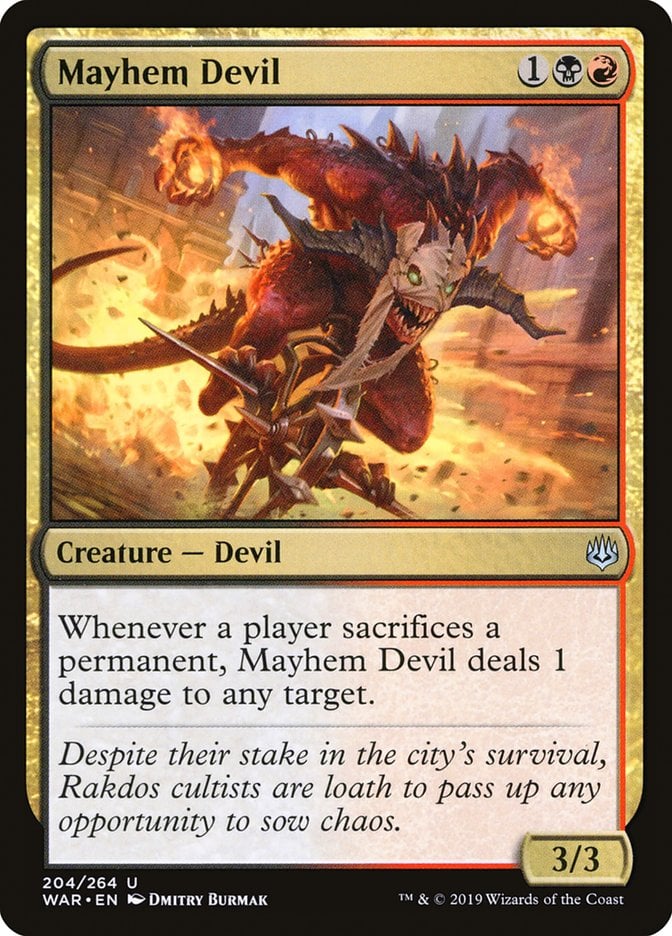
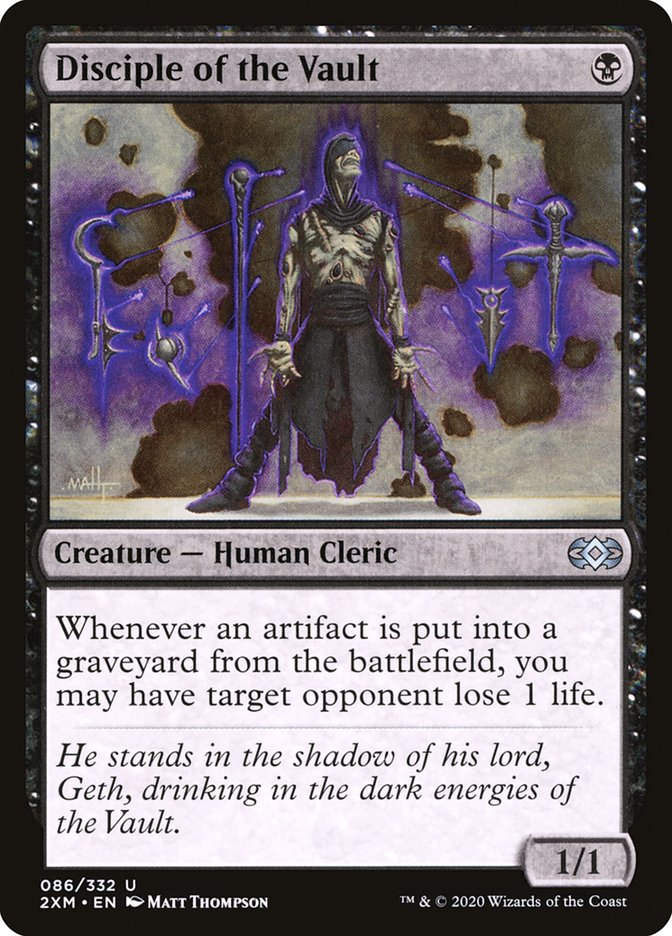
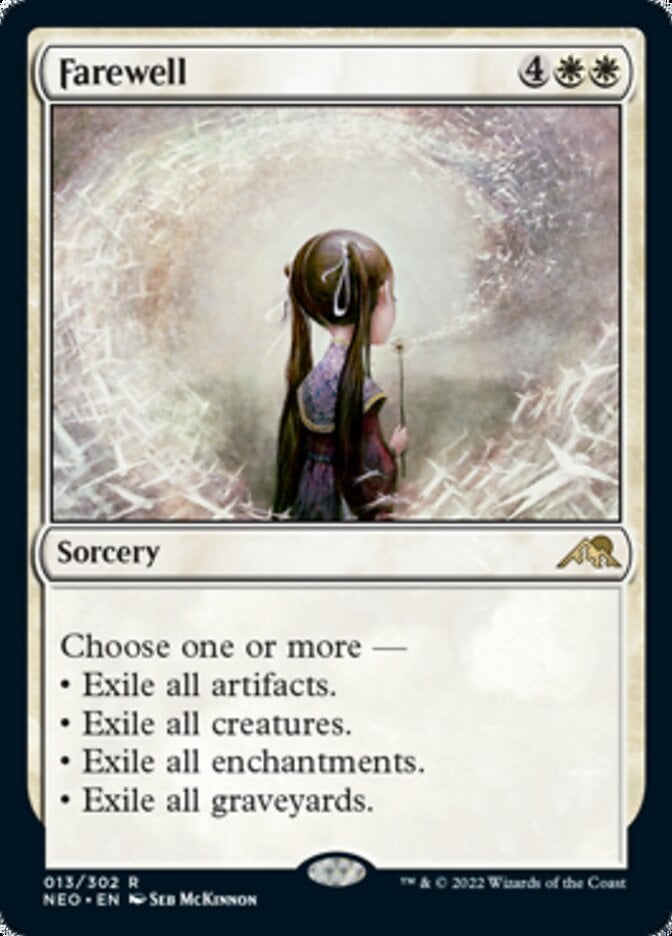
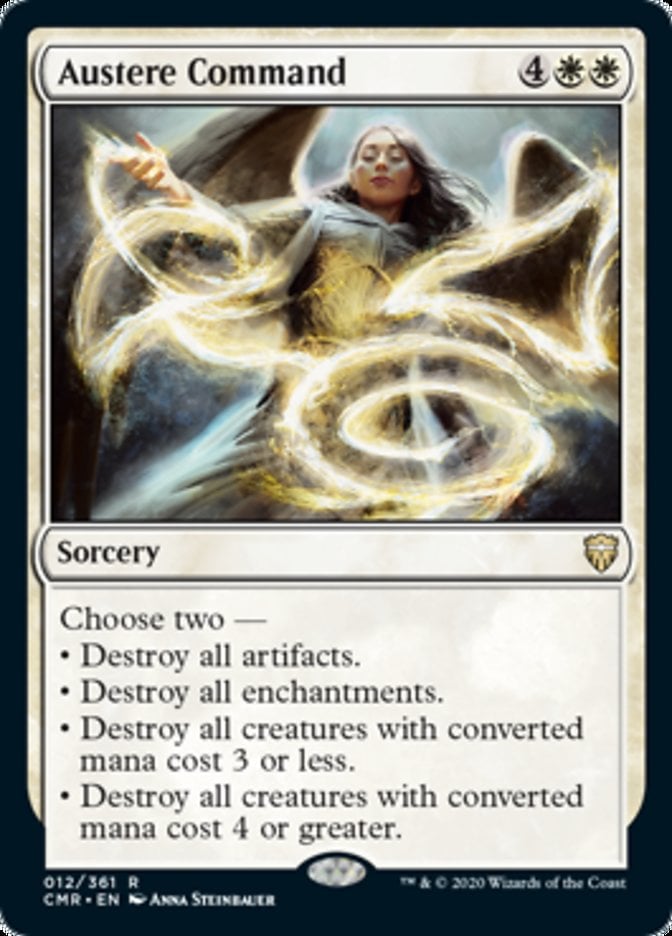
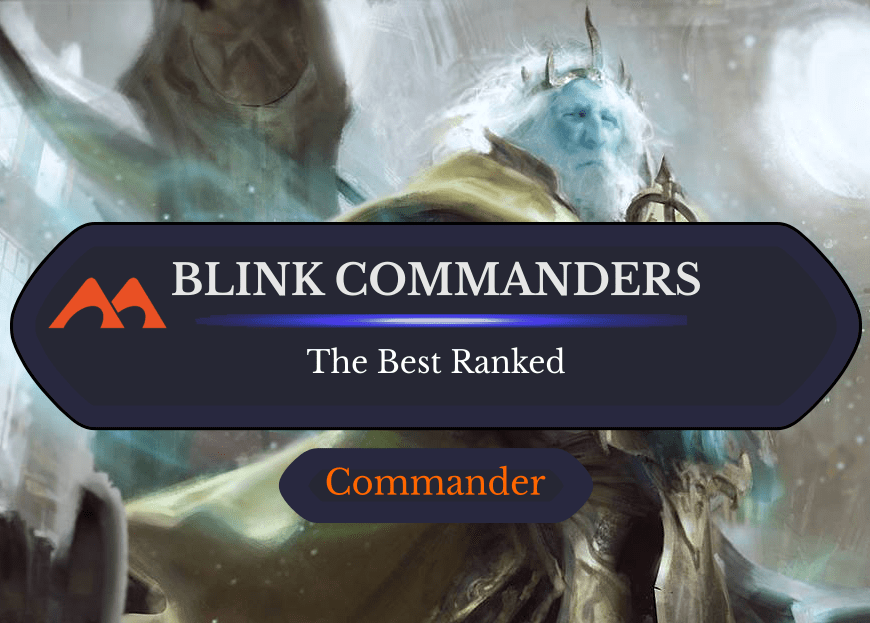

Add Comment